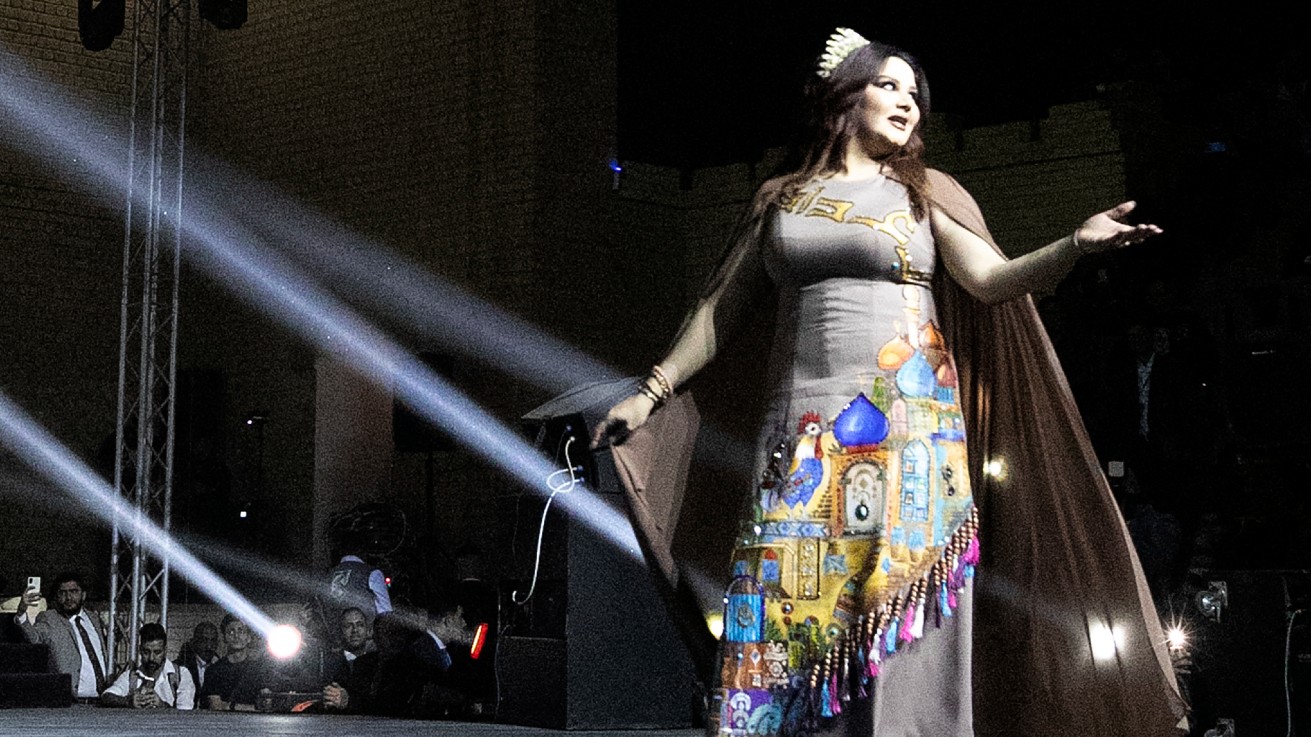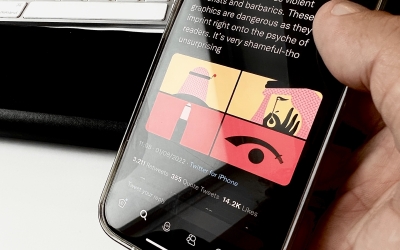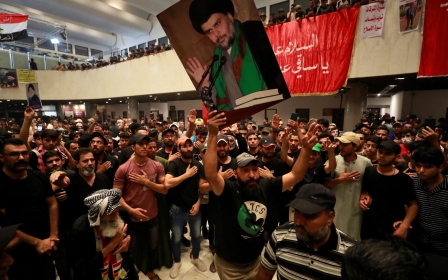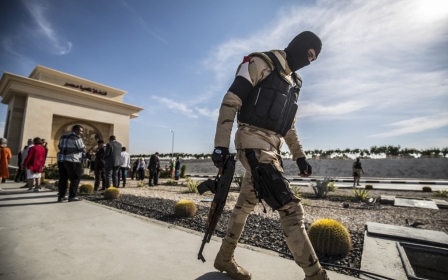Iraqi women rally behind Enas Taleb over Economist 'fat' article scandal
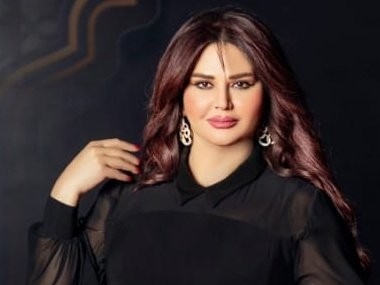
Enas Taleb chose the dress she wore to the International Babylon Festival last year for a reason: it was emblematic of Iraq’s vast and diverse culture.
Little did she know then that an image of her that day would be used to represent more than just Iraqi cultural heritage, something far more problematic.
An Economist article titled “Why women are fatter than men in the Arab world” caused quite the stir when it began circulating on social media. It sought to tackle the issue of obesity but was denounced as reductionist and racist.
Illustrating the piece was a photograph of Taleb, a renowned Iraqi actor, who later revealed that she would sue the British publication.
New MEE newsletter: Jerusalem Dispatch
Sign up to get the latest insights and analysis on Israel-Palestine, alongside Turkey Unpacked and other MEE newsletters
Well-respected in Iraq, Taleb has attracted the solidarity of several prominent Iraqi women.
Balsam Hussein, a beauty queen and the reigning Miss Iraq, told Middle East Eye: “Using Taleb’s photo in this article is a clear insult for all of us, and all Arab women.
“The newspaper, at least, should apologise for its huge mistake and must promise not to do it again next time,” she added.
“What was published and said in the article of course caused serious social damage for the veteran actress and her career.”
Alaa Hussein, a prominent Iraqi actor, was similarly furious about Taleb’s presentation.
“I think the Economist should know more about the Arab world, then write about it. I am really in solidarity with Taleb, and all other Iraqi women,” she said.
“Taleb has the full right to sue the Economist… It is personal slander.”
'Out of context'
In the letter sent to the Economist, Taleb accuses the magazine of defamation and asks for a formal apology. It is not clear whether she is looking for financial compensation.
Her lawyer Samantha Kane told MEE: “I have issued a letter of claim on behalf of my client and demanding apology on her behalf for serious harm caused to her and her career by the publication of the photograph.”
Middle East Eye approached the Economist for comment, but received no response.
'I think the Economist should know more about the Arab world, then write about it'
- Alaa Hussein, prominent Iraqi actor
Taleb herself remains angry, both at her image being used and the content of the piece.
“Why did the newspaper focus on obesity in the Arab world while Western countries also face the same issue? So why Arab women in particular?” she asks MEE.
In the article, the Economist argues that worldwide 15 percent of women struggle with obesity compared to 11 percent of men. It says that rises to 26 percent of women and 16 percent of men in the Middle East.
The Economist says carbohydrate-rich diets and fewer opportunities for sport lie behind the alleged trend. It also claims many Arab men prefer “Rubens-esque” figures, citing the “ample curves” of Taleb.
Taleb remains unconvinced. “The publication tried to export a bad image about Arab women being ‘fat’ due to social restrictions. However, the photo has been used out of context,” she says.
'I am happy with my body'
Taleb began her artistic journey when she was 16, studying fine arts in Baghdad. But the US invasion of Iraq in 2003 dramatically interrupted her studies, and she was forced to flee to Amman in search of safety and stability.
There, she studied media and mass communication at Jordan’s Petra University.
“I could not continue my study in fine arts due to the education system in Amman at that time, so there was only one option, which was studying journalism. It opened the door to be a talk show host on many programmes on Iraqi TV,” she recalls.
“I built up my skills and continued in the field, besides my main profession and passion as an actor. It made me a TV star and influencer on the Iraqi street.”
Taleb has nine million followers on Instagram, a platform she says has become uncomfortable to be on after the Economist article provoked “bullying” comments.
“I am happy with my body. All Iraqis and fans are happy, too. I am a healthy woman who wakes up early in the morning, and I never had any plastic surgery. Audiences have seen me look this way for years,” Taleb said.
The actor has twin daughters aged 10. “My daughters see me as an idol and they are really proud of me being their mother,” she said.
“I am a strong woman, strong in my struggle, my success, my spirit, and my persistence in living that life. And I want my daughters to follow my path when they grow up and become independent.”
Taleb is frustrated that she was not warned about the piece by the Economist before publication. She felt overwhelmed when people suddenly began sending her links to the story with her image blazoned across it - a photo, she alleges, that was photoshopped in the first place.
“My photo on the story was circulated on social media more than the topic itself,” she says.
“There was a great solidarity by Iraqis and my fans, people who frankly told me I should file a lawsuit against the newspaper.
“Once they used my photo, it is a violation of my privacy. I studied media and I know what I am talking about.”
Middle East Eye delivers independent and unrivalled coverage and analysis of the Middle East, North Africa and beyond. To learn more about republishing this content and the associated fees, please fill out this form. More about MEE can be found here.


